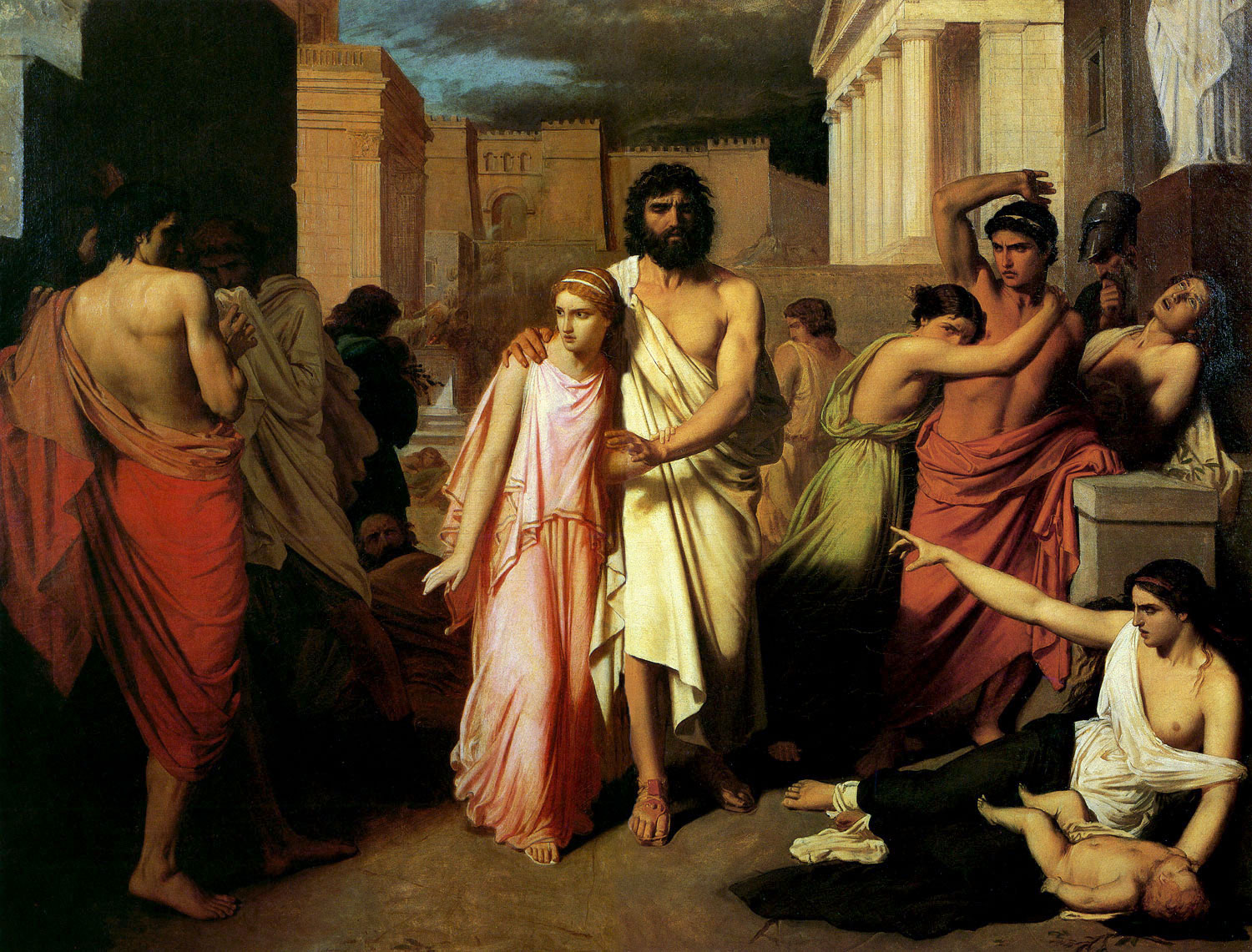There has been a longstanding debate, dating back to Aristotle, regarding the purpose or telos of tragedy, and whether or not the key “tragic” element is the result of a unique or particular character flaw caused by the protagonist. In other words, is Oedipus merely a flawed human being who has brought about the destruction of himself, his family, and his city of Thebes? Is King Lear’s madness, and the subsequent downfall of his kingdom, the result of his own tragic undoing? It is a popular scavenger hunt for modern academics to search through the psyche of King Lear or Oedipus to find some fatal flaw -some poor decision they made as in the case of King Lear and his three daughters: Goneril, Regan, and Cordelia. The purpose of this mode of scholarship is to uncover a convenient and easily digestible moral lesson from the tragedy.
Truly, a case can be made that Sophocles and Shakespeare offer tragedies to educate the polis, though perhaps not by mere moral allegory. Or at least this is not an Aristotelian reading of tragedy, according to Aristotle’s Poetics.
In the Poetics, Aristotle claims that all art is mimesis (imitation) and that all forms of tragedy are imitations of “actions and life” and not of “people” (1453-1454b). A tragedy is an imitation of one whole action, not a person. What is key to a story like Oedipus Tyrannus, is the changing of opposing and unpredictable events, such as when the old Corinthian messenger appears at Thebes to ease Oedipus’s mind, but his story actually does the opposite and sends Oedipus’s life into a tailspin. The action has already been complete. Oedipus merely realizes the tragedy of his life. This scene is composed of reversal, discovery, and suffering. In this way, tragedy imitates “fear and pity” (1452b). Everything Oedipus believes is reversed, and the oracle is proved right.

Tragedies, according to Aristotle, ought not to show men going from good to bad fortune as this is “repellent” and is not pitiable, and also not the converse for this is un-tragic. Therefore, Aristotle famously claims that a tragedy must beautifully show men “not surpassing in virtue and justice” so that they do not fall on account of some character flaw, for they are imperfect by nature, but rather “on account of some missing of the mark” (1453b10). What does he mean by missing the mark? He uses this language elsewhere in the Politics as well as the Rhetoric. For Aristotle, there is a certain “mark” or “telos” in all things: nature, politics, art, and so on. The aim of human life is excellence or virtue understood as happiness by contemplation, the aim of the city is happiness and harmony in parallel to human happiness, the aim of poetics is catharsis.
In order to clarify, Aristotle uses Oedipus as an example to show how the spectator experiences katharsis – perhaps a purging of pent up primal desires, or also a kind of cleansing. This word, now written as catharsis, is meant to convey what he says in the Nicomachean Ethics, which is that all virtues of character are directed at an action that is beautiful, in itself, and this is the good. Therefore, the tragic action befalls an ignorant person who comes to realize the highest purpose of his life is no longer possible: his happiness in life is made impossible. He has “missed the mark.” The tragic hero must be relatable in his complexity, and the tragic elements cannot merely be the result of petty character flaws. In a word, the downfall of Oedipus is not a fault of his own, nor susceptible to modern psychoanalysis (for Aristotle had no notion of anger or spiritedness –thumos– as being a kind of character flaw as defined in the Nicomachean Ethics) but rather the destruction of Oedipus and his family is terrifying, just as the suffering in his life is pitiable. This is the teaching of Oedipus: that people in the audience are elevated (katharsis) when reminded that they, noble and pious people, can see a tragic fate, despite all their best efforts to appease the gods and do what is right. Amor fati is the teaching par excellence.
For this reading I used Joe Sachs’s masterful translation of Aristotle’s Poetics.
